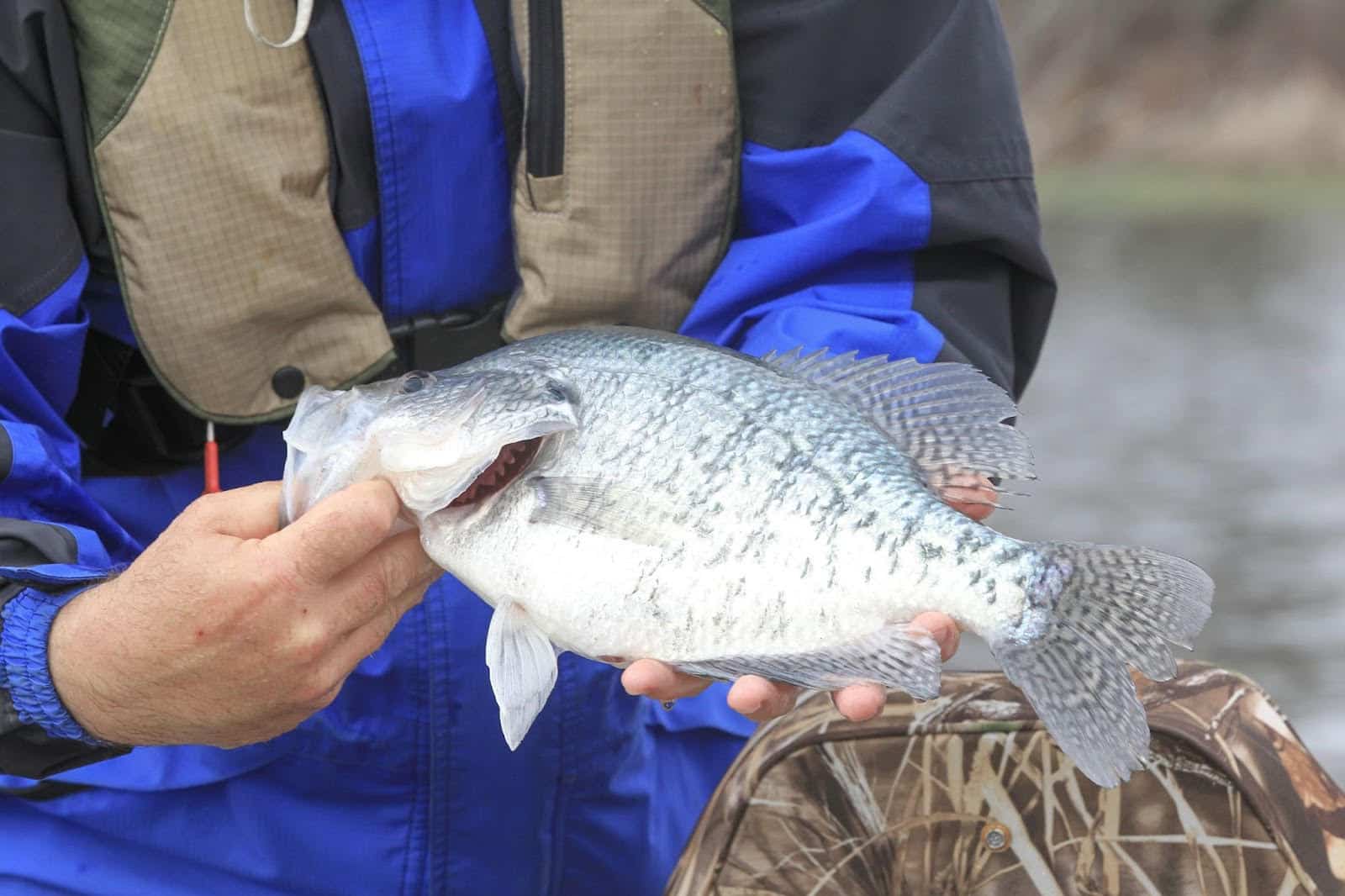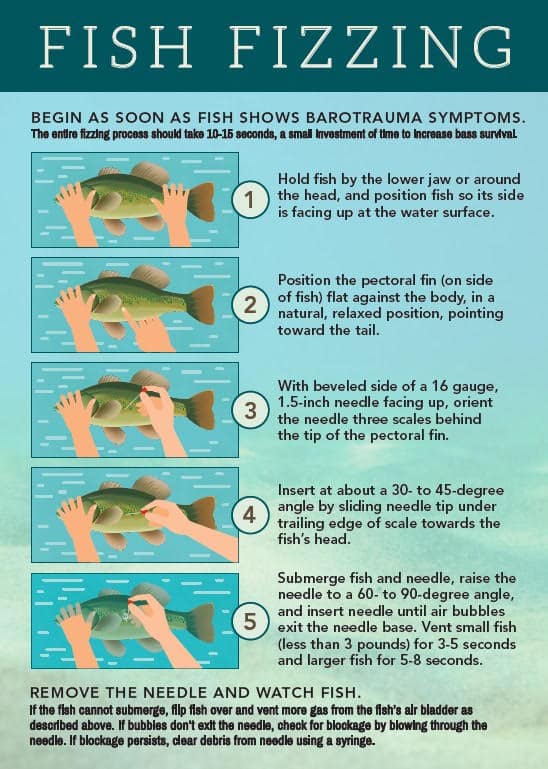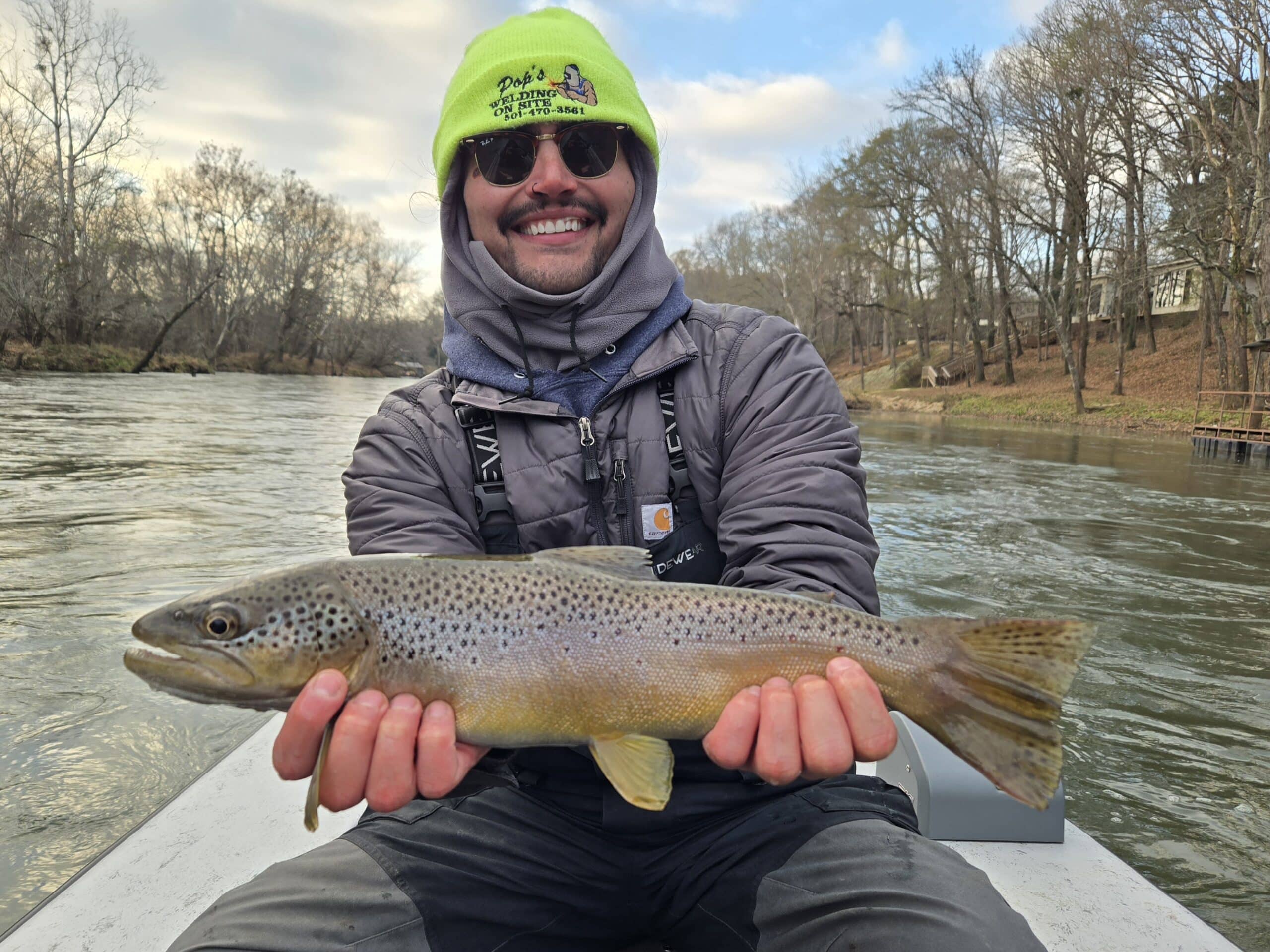Deep trouble: Protecting your catch from barotrauma
BY Paul Port
ON 11-19-2024

MOUNTAIN HOME — As water temperatures cool, most crappie, bass and other gamefish in large reservoirs head to deep water. Anglers wise to their movements will begin to target fish below 25 feet where fish gather on sunken brush and other cover during late fall and winter. But when they bring the fish to the boat from their deep water haunts, anglers can unknowingly contribute to a condition in fish called barotrauma, also referred to as “the bends.”
Barotrauma occurs when fish rise from the depths to the surface too quickly. The rapid change in water pressure causes their swim bladder (an internal gas-filled organ that regulates buoyancy) to expand, potentially leading to serious injury. Bulging eyes, a swollen belly, fish floating upside down or on its side, and even internal organs protruding through the throat are all telltale signs of this often fatal condition. Luckily, there are ways to help fish suffering from barotrauma.
Descending devices are weighted tools that allow you to gently lower the fish back to the depth it was caught, giving its swim bladder time to adjust to the pressure change. Some are designed as open-bottomed cages that allow the fish to swim away once at the depth they came from, but the most popular are clips the angler can trigger once the fish is deep enough. These devices are available through some companies and retailers and are seen most often around coastal waters or lakes where downrigging extreme depths are common.

If you do not have a descending device, you may consider venting or “fizzing” the fish. This involves carefully puncturing the swim bladder with a hollow needle to release excess gas. This is only recommended when the fish cannot maintain proper orientation and can be treated shortly after being caught. If done improperly, the fish can experience severe injury or death. Instructions for venting or “fizzing” can be found in these printable instructions or this AGFC video.
The third option is to simply keep your catch for a healthy meal. Arkansas Game and Fish Commission biologists set game fish limits with the expectation that a certain amount of fish will be kept by anglers. Keeping a few fish doesn’t hurt the overall population, and keeping all fish showing some of the more extreme signs of baratrauma for a fish dinner is much better than tossing them back to inevitably die.
####
Recent News

CWD-positive deer found in Grant, Sevier counties
Dec. 19, 2025

Arkansas Wildlife Weekly Fishing Report
Dec. 18, 2025
Subscribe to Our Weekly Newsletter E-mails
Don’t miss another issue. Sign up now to receive the AGFC Wildlife Weekly Newsletter in your mailbox every Wednesday afternoon (Waterfowl Reports are published weekly during waterfowl season and periodically outside the season). Fishing Reports arrive on Thursdays. Fill in the following fields and hit submit. Thanks, and welcome!
